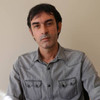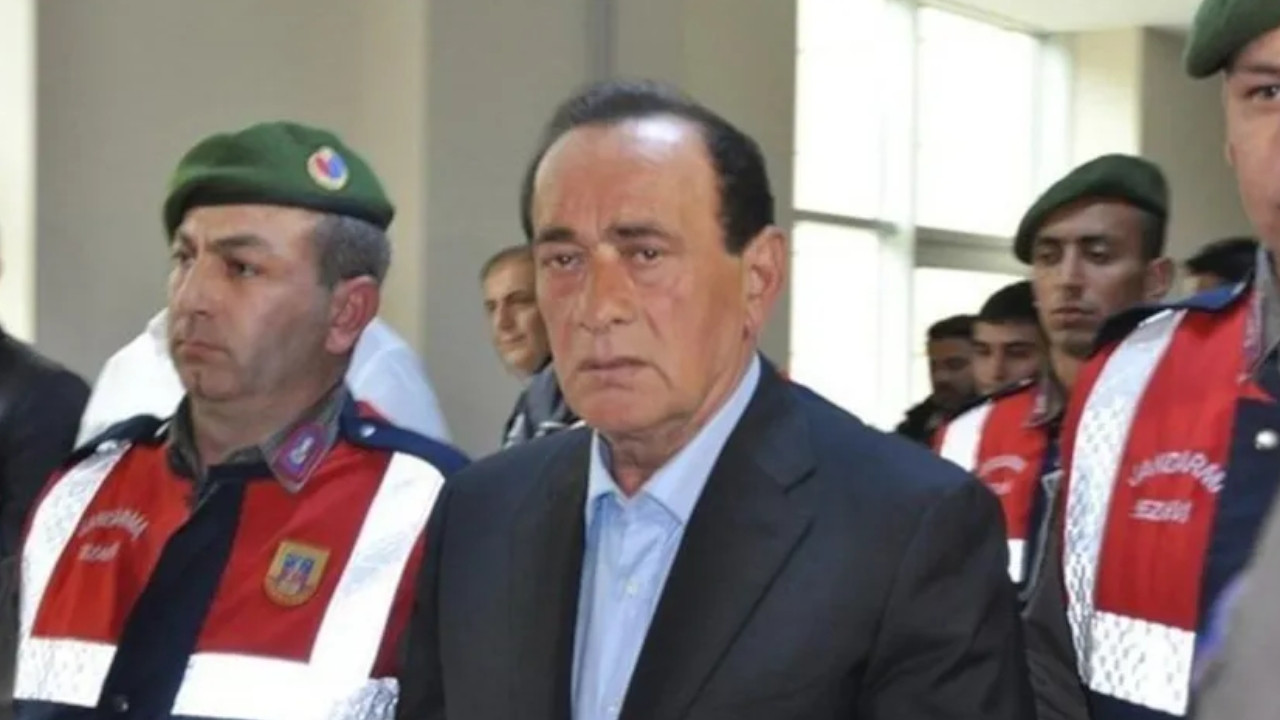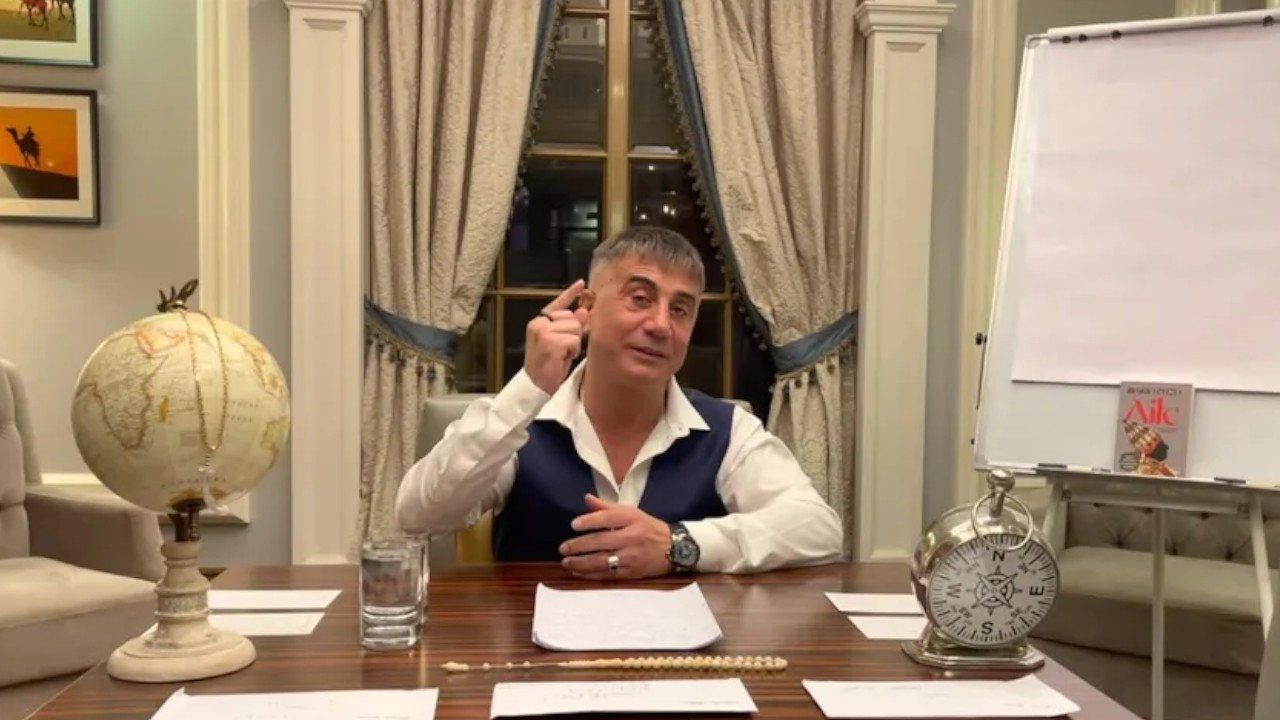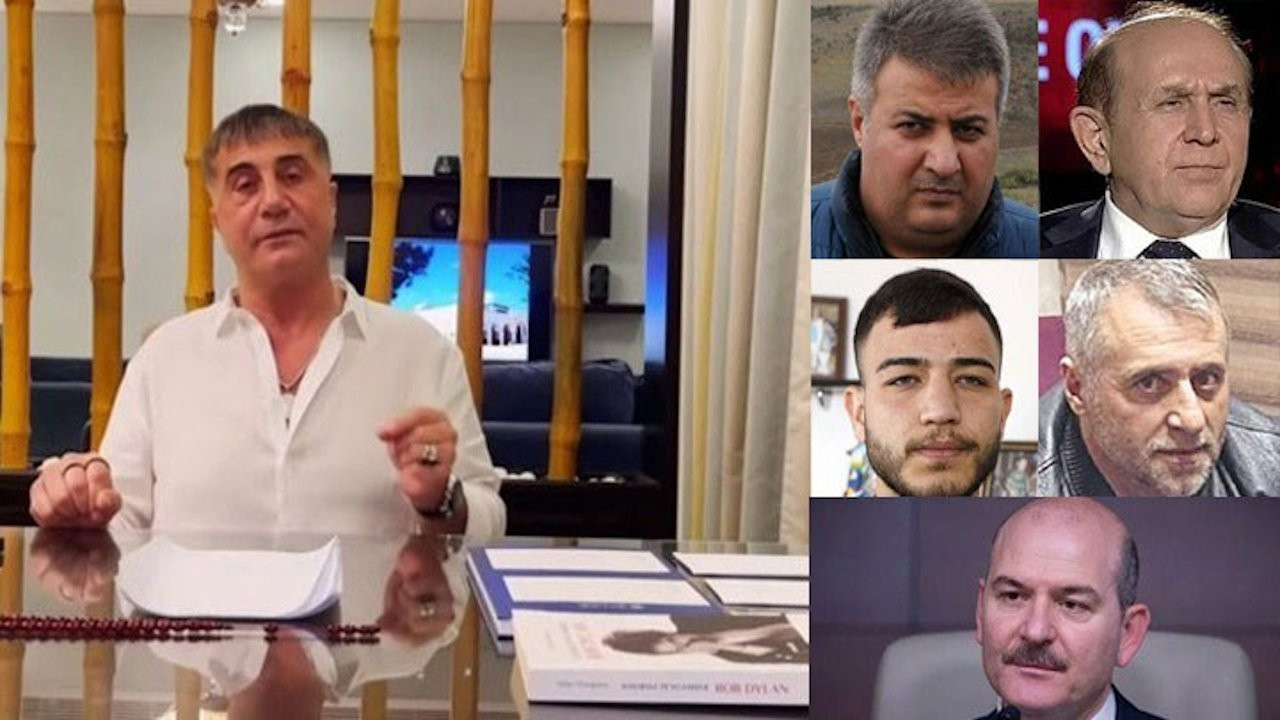A mafia kaftan and the Eurasian crime network
Organized crime has never been free from the mechanism of politics in Turkey. In a country where billions of dollars go to the counter guerrilla, political party staff, and gangs satisfying the bribery addictions of the bureaucracy, there can be no ‘cleaning’ without structural change.
It was March last year when mafia leader Alaattin Çakıcı, who has been sitting in silence for quite a while, was paid a visit by some interesting people. In front of portraits of Abdul Hamid II and Atatürk, they presented him with several gifts. They dressed him in a kaftan; they took pictures and posted them on social media. Of these people, one was from Azerbaijan and the other from Kazakhstan. Why did they travel in a private jet to visit Çakıcı?
For months, oligarchs, members of the police and judiciary, drug lords, and the “respected” members of the government all appear in the same frame. Exposures of these networks excite the majority of the people and gives us dreams of a world without such corruption; However, the crime in front of us is not the product of enforcement from the judiciary or society. Everything is happening within a government crisis, within the state.
The photograph of Çakıcı in the kaftan symbolizes an important detail in the story. A detail associated with the photo of Mehmet Ağar, Korkut Eken, Alaattin Çakıcı and Engin Alan taken at Yalıkavak Marina, at Muğla’s Bodrum district, southwestern Turkey.
Let’s see what kind of a transformation the Turkish leg of a “Eurasian crime network” has gone through, one which has been living in symbiosis with neo-Ottomanism.
The person to the left of Çakıcı was Namık Salifov. On August 19, 2020, his brother Nadir Salifov, an Azerbaijani mafia leader nicknamed ‘Lotu Guli,’ suspected of numerous murders was killed by his bodyguard in a hotel in Antalya, Turkey. They say Namık Salifov is now wearing the ‘crown.’
Sedat Peker, another mafia boss, told us in one of his videos that he was banned from entering Turkey because he was blamed for the killing of a policeman in a shootout in Edirne, northwest of Turkey. He said, “This man’s deportation decision was lifted and he was brought to Turkey by the head of the deep state. Do you know why? It was for him to kill Mansimov. He called me and said, “I’m going to Turkey.” I said, “Don’t go. I’m not there. You might have some trouble.” He said, “I am strong. I am on very good terms with Brother Mehmet.”
A couple of weeks later, Interior Minister Süleyman Soylu, in a calm tone, implied that Guli was a notorious criminal, that they had captured him in 2018, but that someone set him free. The operation Soylu referred to took place in Istanbul on the E-5 highway and a special operations police chief was also caught alongside Guli.
What was the incident that happened in Edirne?
In 2014, a clash erupted in front of Saray hotel on Eski Istanbul Street. A policeman from the Edirne Police Department’s Anti-Trafficking and Organized Crime Branch, who was supposedly there by coincidence, was killed. A video shows the moment of the shooting.
Another video, posted long after claimed Namık Salifov (his other last name is Bakinski) was also involved in the shooting. This incident was reported in the press as a Georgian-Russian mafia conflict. In the aftermath of this incident, a wave of violence led to executions and assassinations in Istanbul's upscale neighborhoods. There is a picture of the Guli brothers, which was allegedly taken in Edirne before the incident.
Now back to the picture and to the person who sits to the right of Çakıcı. His name is Arman Dikiy. He gave the caftan to Peker two years ago. Peker posted it on his Instagram account, saying, “Arman Dzhumageldiev, one of the youth leaders of sister country Kazakhstan, and his friends came to visit me.”
As a matter of fact, Arman, nicknamed ‘the savage Dikiy,’ was neither a youth leader nor was the visit a cultural dialogue. He was a comrade Guli always kept nearby. In several foreign media reports, they have been mentioned together in international money laundering investigations.
Dikiy has been described as an “emerging mafia leader” in the press in Kazakhstan and Uzbekistan. He has a photo with Foreign Minister Mevlüt Çavuşoğlu, which we do not know when or why it was taken, which circulates on social media accounts opened by Dikiy's fans.
Although Peker, Çakıcı, and many others have always been involved in the criminal world, they can easily be seen standing side by side with politicians. Similarly, Dikiy, who has posted, without fear of legal reprisal, footage of his yacht trip in the Bosporus while he shoots randomly in the air, is treated with the same ‘respect’ in their countries.
Isn’t this the crux of the problem? We cannot see where crime ends and politics begins. When studying the regime in Turkey, it is necessary not to neglect the dark side of ruling. Let’s enlarge the frame a little more in the “Eurasian crime network.”
After 2009, a showdown in Russia that began with the murder of mafia leaders in succession soon spread to Istanbul. The changes in the drug smuggling route, the arms market in Syria plus oil smuggling all signaled the most productive era the criminal world has ever seen. New financial opportunities emerged as well as other occasions created by the formation of similar political regimes one after the other. They also brought up the question of who would manage the multibillion-dollar black money universe and how.
Turkey, which has undergone a radical regime change, seductively blinked as if it needed this. While foreign financial resources shrunk, the country opened its doors wide to a ‘new paradise’ for the dawn of crime.
Crime, of course, has no ideology, but the policy of neo-Ottomanism which was “bring what you can find” policy has carried black money as well as bloody clashes to the streets of Istanbul. No doubt, formations that rose in Central Asia in the 2000s after the fall of the USSR which are often referred to as the “Eurasian criminal network” in the investigations of the US Treasury Department have found the climate that suits them.
With a simple archive scan, it is possible to see that similar conflicts that are in movies are happening in Istanbul. Add to them bribery, corruption, connections of drug traffickers and politicians, and cases of “property seizure.”
While a new government design was orchestrated in Turkey, suitable ‘criminal management’ was also being built. Peker’s words that he repeated each time, “We did it together,” were seen in trailers at presidential election rallies. Try to remember that photo with Çakıcı and Ağar at Bodrum’s Yalıkavak Marina, together with Peker’s disclosures.
Let’s read together the last paragraph of Çakıcı’s statement on this story that was only published in Northern Cyprus press two months before the Yalıkavak meeting: “Why don’t the newspapers focus on those traitors who used the money of the Armenian diaspora and the Colombian mafia in Turkey and seized the property of indebted businessmen? Those so-called businessmen who managed the money of FETÖ and the PKK? Their wrongdoings?”
Just this one paragraph, don't you think it has signaled the upcoming scandals that have been coming our way for months? Isn’t it a little brighter now, what the Yalıkavak photo symbolized?
What about the kaftan changing hands from Peker to Çakıcı?
Organized crime has never been free from the mechanism of politics in Turkey. In our current state that was built with the coup of March 12, 1971, political hegemony and hegemony in the criminal world have always been coordinated; it still is. The rupture in one front is spreading to the other one at an enormous rate.
In a country where billions of dollars of black money are assigned to all kinds of needs, from the requirements of the counter guerrilla to the wishes of the political party staff, from organizing gangs to satisfying the bribery addiction of the bureaucracy; as long as the structure of the state does not change, “cleaning” is limited to the change of ownership of the kaftan. That’s all there is to it.


 Turkish court sentences mafia boss to prison over threat against opposition leaderPolitics
Turkish court sentences mafia boss to prison over threat against opposition leaderPolitics Turkish mafia boss vows more revelations after social media restriction liftedPolitics
Turkish mafia boss vows more revelations after social media restriction liftedPolitics Turkish mafia leader says femicide suspect walked free after Minister Soylu intervenedPolitics
Turkish mafia leader says femicide suspect walked free after Minister Soylu intervenedPolitics